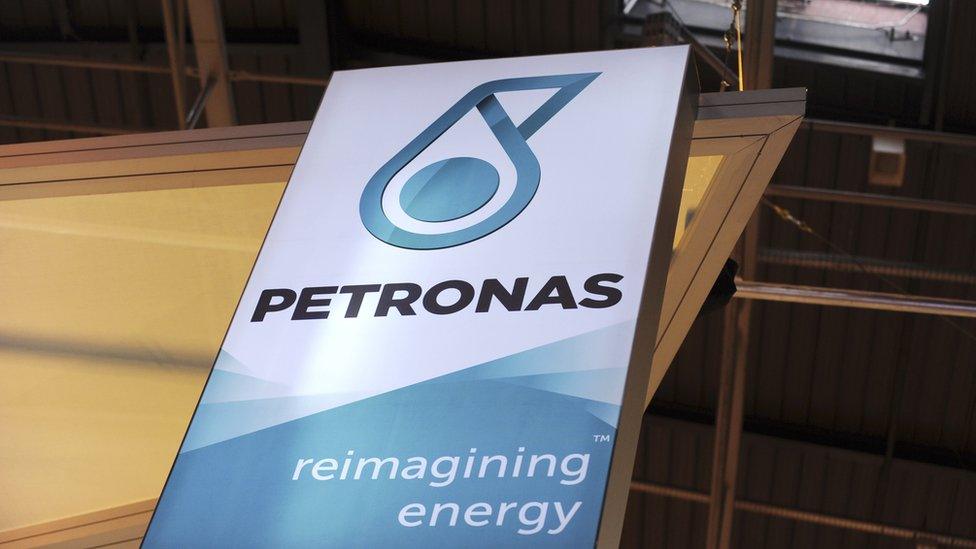Petronas cancels Pacific NorthWest LNG project in Canada
- Published

The Canadian LNG project would have been Petronas' largest foreign investment
A controversial liquefied natural gas (LNG) project planned for Canada's west coast has been cancelled.
Pacific NorthWest LNG announced the project would not proceed "amidchangesin market conditions".
Canada authorised the project last September despite concerns over its potential contribution to greenhouse gas emissions.
The major energy project would have seen LNG exported to emerging Asian markets.
The cancelled initiative was one of the largest resource development initiatives in the country.
Tuesday's decision was made by Petronas, the Malaysian oil and gas company leading the project, as well as its partners.
"We aredisappointed thatthe extremely challenging environment brought about by the prolonged depressed prices and shifts in the energy industry have led us to this decision, said Anuar Taib, chairman of the Pacific NorthWest LNG board said in a statement.

First Nations protesters wear 'No LNG' shirts during the 2016 royal tour with the Duke and Duchess of Cambridge
Mr Taib also said Petronas and its partners will continue to develop natural gas assets in Canada.
The C$36 bn ($28bn/£22bn) project would have seen a natural gas liquefaction and export terminal constructed on British Columbia's northern coast, as well as a new pipeline.
The terminal would have been built on Lelu Island, which sits at the mouth of the Skeena river near Prince Rupert, British Columbia.
There were worries over the potential threat to an important salmon habitat alongside concerns over greenhouse gases.
The controversial project sparked protests by some of the First Nations in the region. Other communities supported the LNG terminal because it would have injected millions of dollars into the local economy and created jobs.
- Published28 September 2016

- Published31 May 2017

- Published1 October 2016
